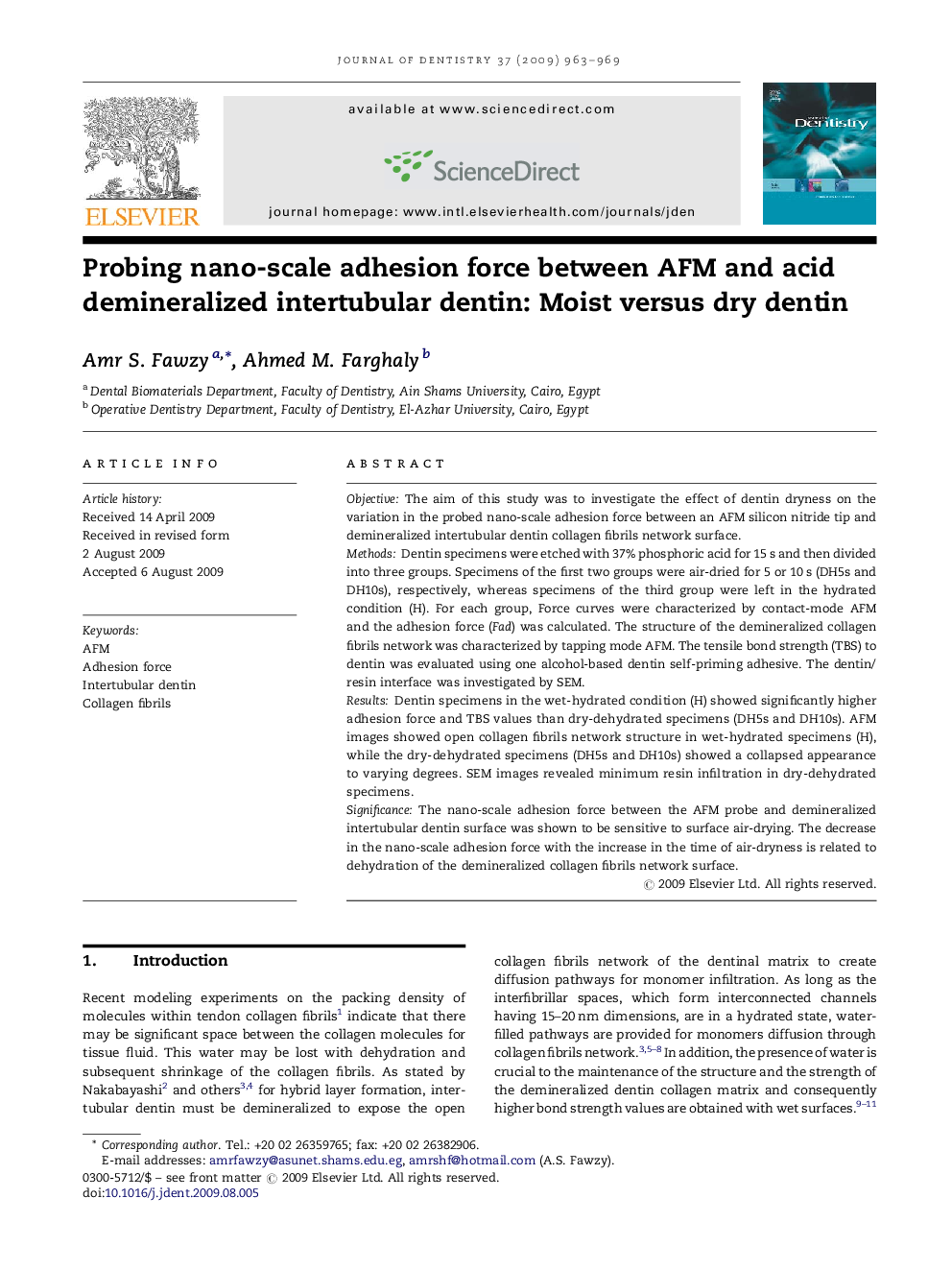| Article ID | Journal | Published Year | Pages | File Type |
|---|---|---|---|---|
| 3145582 | Journal of Dentistry | 2009 | 7 Pages |
ObjectiveThe aim of this study was to investigate the effect of dentin dryness on the variation in the probed nano-scale adhesion force between an AFM silicon nitride tip and demineralized intertubular dentin collagen fibrils network surface.MethodsDentin specimens were etched with 37% phosphoric acid for 15 s and then divided into three groups. Specimens of the first two groups were air-dried for 5 or 10 s (DH5s and DH10s), respectively, whereas specimens of the third group were left in the hydrated condition (H). For each group, Force curves were characterized by contact-mode AFM and the adhesion force (Fad) was calculated. The structure of the demineralized collagen fibrils network was characterized by tapping mode AFM. The tensile bond strength (TBS) to dentin was evaluated using one alcohol-based dentin self-priming adhesive. The dentin/resin interface was investigated by SEM.ResultsDentin specimens in the wet-hydrated condition (H) showed significantly higher adhesion force and TBS values than dry-dehydrated specimens (DH5s and DH10s). AFM images showed open collagen fibrils network structure in wet-hydrated specimens (H), while the dry-dehydrated specimens (DH5s and DH10s) showed a collapsed appearance to varying degrees. SEM images revealed minimum resin infiltration in dry-dehydrated specimens.SignificanceThe nano-scale adhesion force between the AFM probe and demineralized intertubular dentin surface was shown to be sensitive to surface air-drying. The decrease in the nano-scale adhesion force with the increase in the time of air-dryness is related to dehydration of the demineralized collagen fibrils network surface.
